Dramaland justice: The vigilante edition
by missvictrix
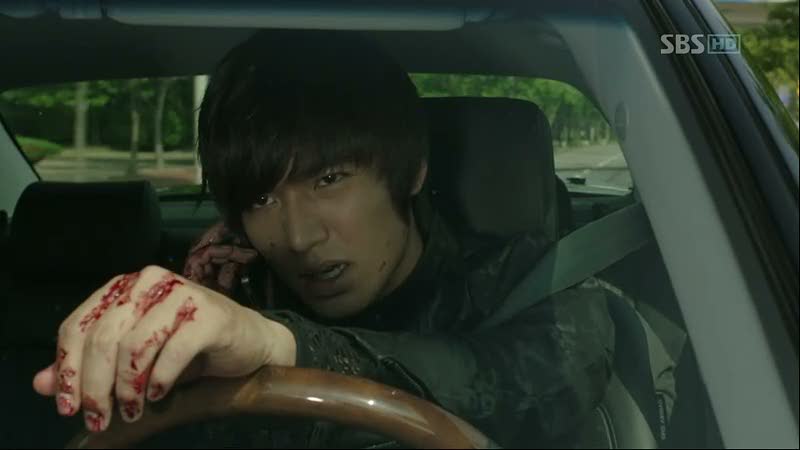
The concept of justice is one of the backbones of K-drama storytelling. We’ve looked at some ways dramas deploy justice — through compensating their heroes/heroines with a gift, and delivering a swift kick of comeuppance for those that need to be punished. But what happens when our characters are living in a world where justice isn’t delivered?
When heroes and heroines are faced with wrong and evil-doing, they’re mostly divided into two camps: those that grin and bear it with faith that it will all work out in the end, and those that take justice into their own hands. The first group make up the bulk of K-drama stories, and is the rhetoric of the “Candy” heroine. Love it or hate it, this dynamic is all over dramaland, and is more about justice (fundamentally, girl vs. universe) than we sometimes think. The second group, though, is where we get the more wild and wooly tales of heroes and heroines pursuing justice at all costs: the vigilantes of dramaland.
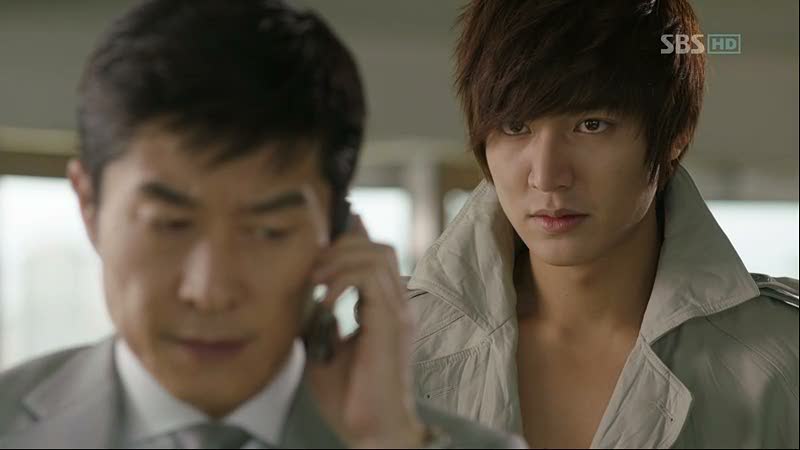
Heroes and heroines that take justice into their own hands are a favorite figure in storytelling. They’re full of daring, determination, and often devil-may-care desperation. You might not always approve of their methods, but you can’t disapprove of their zeal. And it makes for some good drama.
“Vigilante” is a word that came into English through a typically twisty path, and its root meaning is around the persona of a watchman, guard, or the concept of keeping a vigil. The first K-drama hero that comes to mind with this definition is, of course, Lee Min-ho as the eponymous City Hunter. The name says it all. Like the start of many tales of vigilante justice, City Hunter met with a combo of tragedy, realization, and some questions with a capital Q that acted as the catalyst to his story.
Stories don’t always take the time to capture the moment when something shifts for the hero/heroine and causes a ripple that disrupts everything moving forward, but I loved that City Hunter took the time to do this. The line has stuck with me all these years because of the decidedness in the hero’s voice. Sitting in the aftermath of the mess around him, he says: “I am going to change now.” Is it a prediction, pronouncement, or a little bit of both? Either way, it’s the trigger for him to become a beacon of justice in Seoul, taking down corrupt pieces of the puzzle, bit by bit.
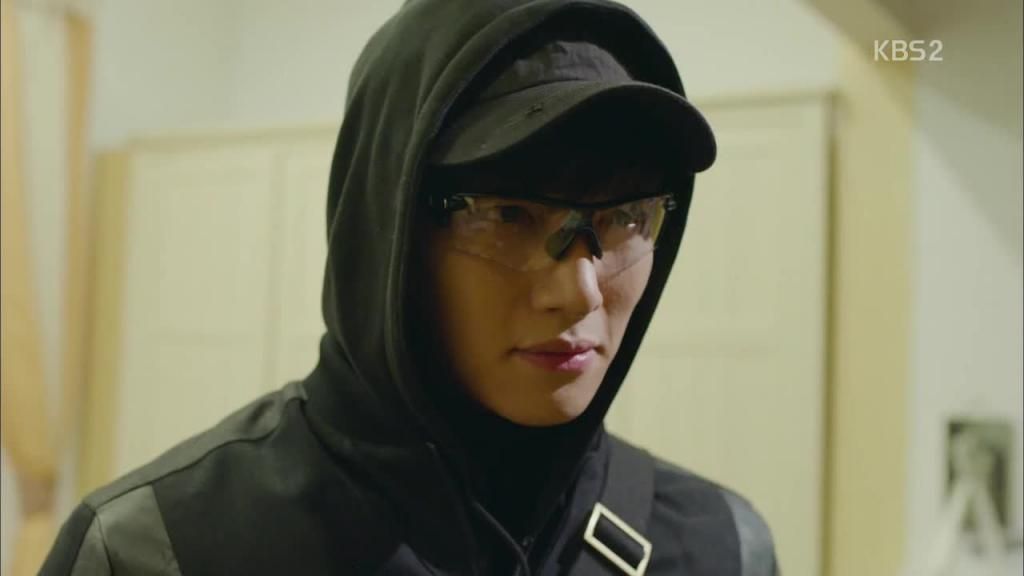
Another well-loved solo vigilante in dramaland is Ji Chang-wook as the “night errand boy” and eponymous hero in Healer. He might start off as a for-hire operative, but it quickly gets personal for him. Like City Hunter, he works his vigilante magic to slowly peel away layer by layer to get at the truth in his past. Both of these heroes have quite a bit in common, and are driven to uncover the truth, understand their true identity, and deliver justice to those who evaded responsibility for their crimes.
It’s important to note that for these vigilante stories to work, the existing justice system and/or circumstances have to be rotten. When truth and justice are not attainable through “ordinary” means, the measures our vigilantes take are then justified (by the rhetoric of the story, anyway). For heroes like City Hunter and Healer that go rogue, they’ve been either deceived, abandoned, or harmed (or all of the above) by those close to them. The truth, for them, is only attainable if it’s forced out of people and situations. And because they seek the truth, and have met with obstacles when trying to reveal it through more traditional means (read: legal, sane, safe), we can stand behind their vigilante methods.
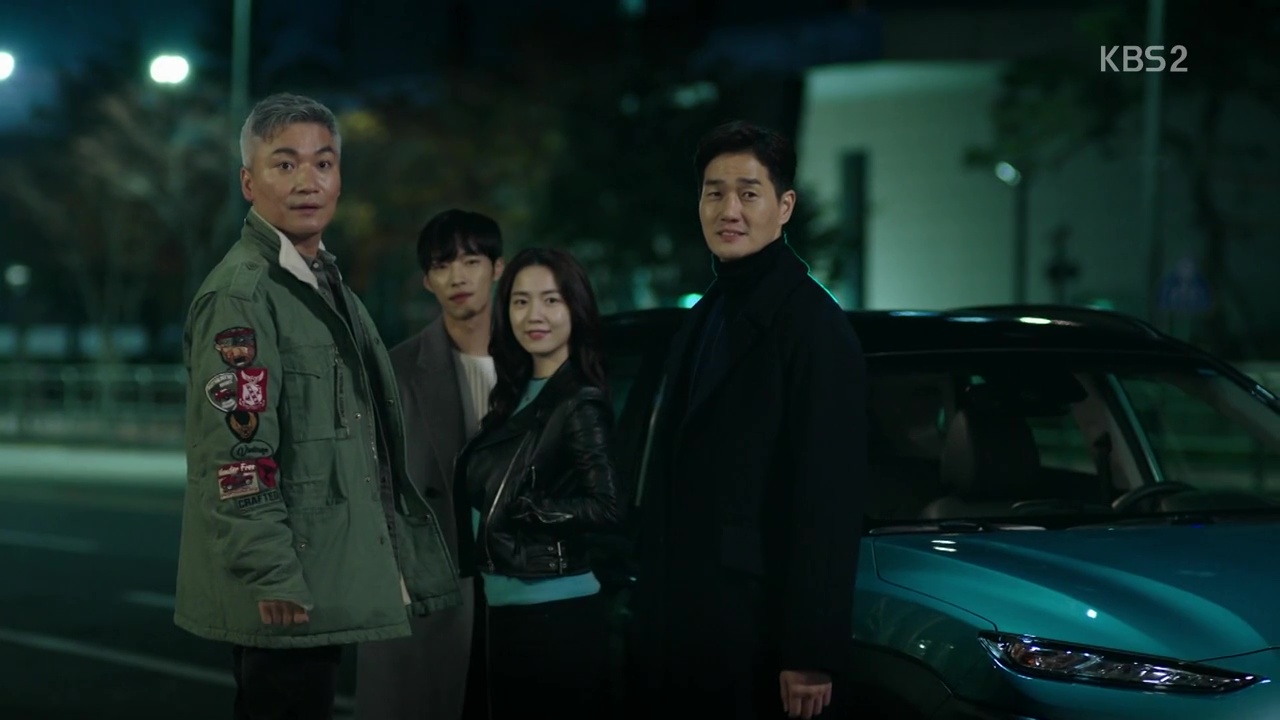
The solo hero with a dual identity makes for a great vigilante hero, but vigilante justice in dramaland is just as sweet when it’s delivered by a group. Because what’s better than one vigilante? A group of them banding together like a dysfunctional-but-functional family.
We’ve seen this dynamic in dramas like Mad Dog, Lookout, and even Neighborhood Lawyer Jo Deul-ho. It’s just as fun to see these characters butt heads as it is to see them get in sync with each other, joining forces to defeat and expose a common enemy.
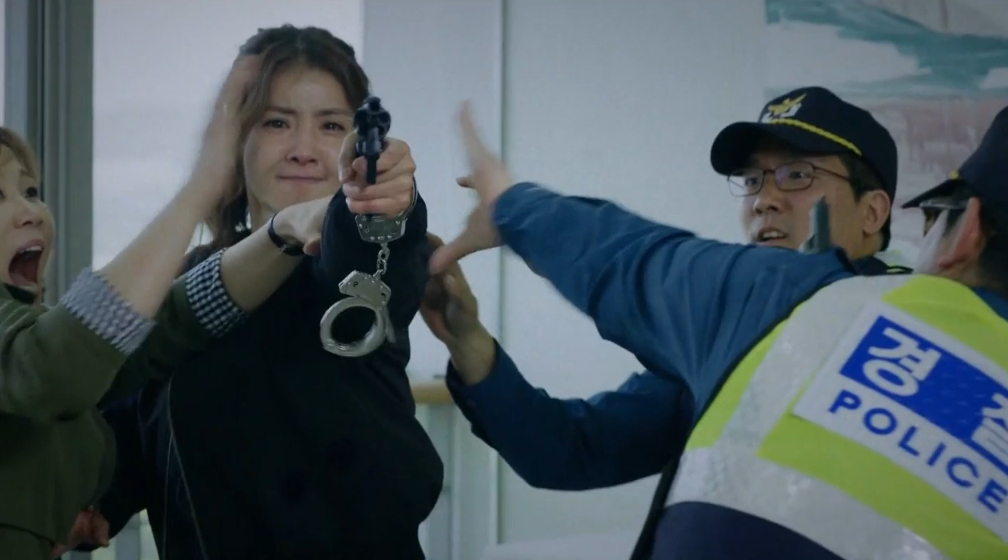
All the dramas I’ve talked about so far have been from the action/crime thriller side, but the defiant justice-seeking hero/heroine can be found in other genres as well. Of course it looks a lot different — it’s often more about one person standing up against the hegemony. After all, a protagonist don’t have to dress in all black and fight in hand-to-hand combat to be in the same group as other action genre vigilantes.
Melodramas like Time and Secret, for example, might seem like the polar opposite of the dramas mentioned above, but they still hold a lot of the same elements. A hero/heroine meets with injustice and tragedy (wrongful death, wrongful imprisonment) that is either covered up, or considered unworthy of further investigation (slipshod investigation, convenient cover-ups). Since the law didn’t provide them with justice, the protagonist must seek it out herself — and that’s exactly what these heroines set out to do.
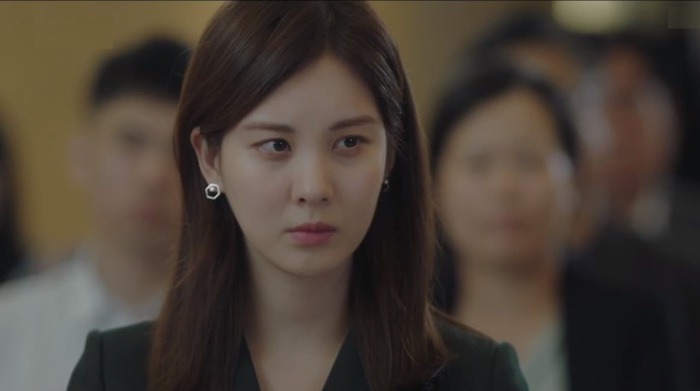
Rom-coms are another place we wouldn’t expect to find the concept of vigilante justice — but we can even find elements of it here too, if we look. Take the group of contract-holding secretaries in The Secret Life of My Secretary, for example.
This group of side characters formed almost a secret society where they not only united against injustice done to themselves (abuse of power, denial of permanent jobs), but those injustices committed by the company that affected others as well. From the infamous arowana fish, to a detailed log of bribes and embezzlements, these secretaries fought for justice just as hard as any night errand boy or assassin. After all, seeking justice isn’t only for those with ninja-level skills — it’s for everyone.
While stories about vigilantes pursuing justice are highly skewed in the action genre direction, it’s a storytelling element that can be found almost anywhere. Because the concepts of justice, equity, and fairness, are so universal, when we’re presented with a well-crafted story about the pursuit of justice, it’s something we can all empathize with. Dramas know this, and use it to build cathartic, relatable, and enjoyable tales.
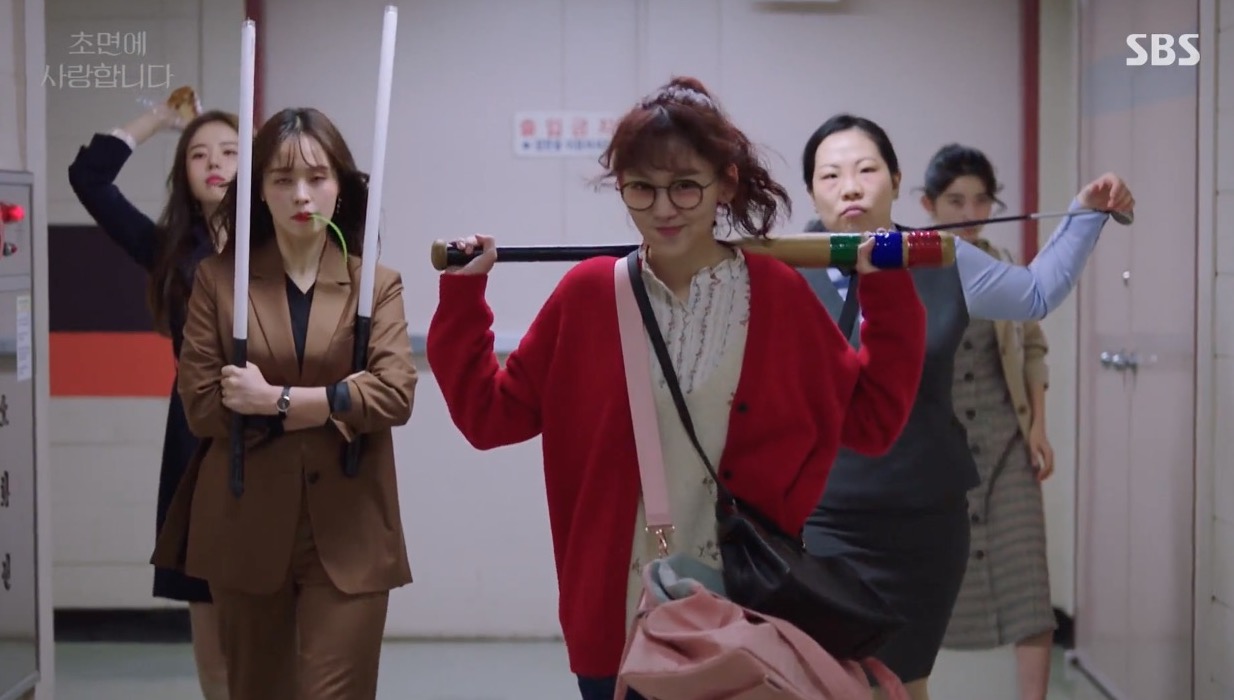
RELATED POSTS
Tags: City Hunter, editorial, Healer, Neighborhood Lawyer Jo Deul-ho, The Secret Life of My Secretary, Time
![[Drama Chat] I’ll stick around dramaland in 2025 because…](https://d263ao8qih4miy.cloudfront.net/wp-content/uploads/2024/01/mmh78_5-scaled.jpg)
![[Beanie Review] Light Shop](https://d263ao8qih4miy.cloudfront.net/wp-content/uploads/2024/12/LightShop_reviewb.jpg)
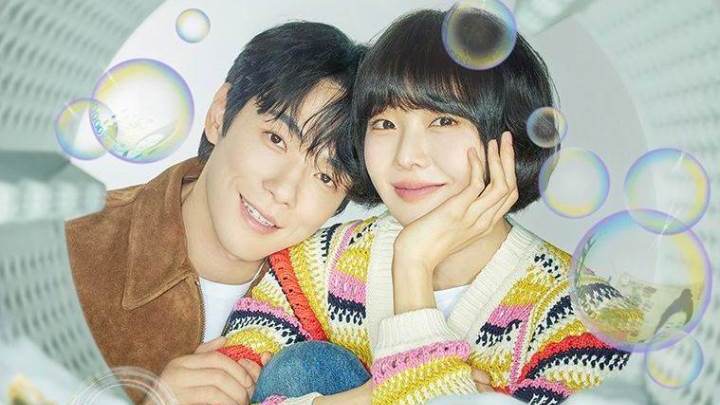







Required fields are marked *
Your email address will not be published. Required fields are marked *
1 💜🍍☠ Sicarius The Queen of Melonia ☠🍍💜
September 14, 2019 at 9:01 PM
Ahh that dang fish.
Required fields are marked *
2 Linda Palapala
September 14, 2019 at 9:22 PM
My favorite vigilante justice was Mawang. (The Lucifer). His older brother was murdered when he was young, then his mom died, all because the murderer was the son of a politician and wealthy businessman who had influence and power. He grows up, becomes a lawyer, and sets out to avenge his brother's killer through the law - well, sort of, it wasn't exactly that.
He wasn't what I'd think of as a true vigilante though, because he sort of sold his soul to the devil, a la Faustian, and paid the price.
He never personally took revenge or harmed anyone , but set up temptation to those responsible and then waited to see if they would choose good or evil. Since he had no faith in humanity any longer and even though he hoped they would choose the righteous path, of course they never did and he managed to bring down the whole family by setting up said temptations. It was really well done. It got low ratings I think because most people were expecting a love story and it wasn't a love story.
Also, the murderer had "repented" and when he grew up became a cop as sort of penance. But you immediately know the avenger is the good guy and the cop is a self-righteous hypocrite who's a real jerk, to put it nicely. It set up the question: who is good, who is evil, who is righteous. And thrown in the mix was a librarian who tried to bring the avenger in out of the dark into the light. But it was too late.
Required fields are marked *
missjb
September 15, 2019 at 2:39 AM
It's my fav too.... Oh Seung Ha looks so lifeless after his childhood trauma, that u wonder, such traumatic event. At such a young age to hit him. SUch a roller coaster ride always switch side for the entire drama, at times sided with the hero, the other time, I feel for the villain.
Required fields are marked *
Linda Palapala
September 15, 2019 at 9:06 AM
But that's it - who was the "hero" and who was the "villain"? The avenger broke the law but he was basically a decent human being who was broken because of the lack of justice. The "hero" was a policeman who would break laws himself to catch a bad guy
Required fields are marked *
3 growingbeautifully
September 14, 2019 at 10:55 PM
Thanks for your good exposition on vigilantes @missvictrix
I notice that you have a soft spot for one of my favourite shows, Healer and I'm so pleased to see it mentioned again in your article. Yes indeed, Healer and City Hunter are good examples of the vigilante element, as you put it.
I never really thought through it before, but yes, justice is the main concept around which many dramas revolve and getting it served in whatever form, often makes up the bulk of the plot.
Even the recently completed A Moment at Eighteen started strongly over the apparent just or unjust treatment accorded a transfer student and all the different responses and reactions towards this.
In every show where revenge or punishment rears its head, the concept of what the other party did (or failed to do) was judged as bad/wrong, unfair or unjust. Steps need to be taken to right the balance and bring some level of justice.
Therefore in Hotel (de la) Luna, it was cathartic (on the justice front), that the selfishly foolish (firefly) and the overly zealous (Man Wol) 'killers' got themselves punished quite thoroughly, before being allowed an Afterlife.
I laugh at your mention of my latest fave fluff show "i>The Secret Life of My Secretary. Justice for the secretaries was certainly one put-to-the-side sub-plot, but there was the other 'justice' element of the rather arrogant Boss who treated a secretary as one to be used and then thrown away, who ended up depending almost entirely on his secretary. That was comeuppance in a sense.
It also showcased that despite the unfairness and injustice of his predicament, Boss could never, ever get full redress for the wrong done to himself. The accident that caused his face blindness could not be undone, nor could the evil done by his father and uncle ever be made right for the victims. I applauded Boss for forgiving his uncaring 'family' and still regarding them family that he wanted to hang out with. He had to accept it and move on, which he did, with begrudging 'mother' and the help of his secretary and lots of romance. 😋
Required fields are marked *
4 13infamyss
September 15, 2019 at 12:06 AM
The mention of Healer and “night errand boy” in this post remind me of errand boy beanies’ revolt and plea to get to the next beanie level this week 😂 Not for me though. I can be an errand boy for life with Healer-oppa! 😆 Anyways beanies coming together on fanwall is always cathartic, relatable, and enjoyable to read.
+++
City Hunter and Healer are what comes to mind as well when we talk about vigilantes. I guess Hades, from Ghost, fits the bill too. No one knows his true identity except a few people. He quit the police academy due to injustices he’s found and was, I believe, wrongly accused. He resorted to go underground, use an alter ego, Hades, to correct what was wrong in the society.
Required fields are marked *
5 Kurama
September 15, 2019 at 1:04 AM
As a big fan of the anime City Hunter, I always was disapointed by the Kdrama.
But I loved Healer! It was a great drama even if he's not a vigilante in the first place.
Mad Dog was a great drama too, I love the team! I loved the 38 Task Force Team too, the women were all badass!
Korean version of Leverage looks already great with the casting! I'm really curious about it!
Required fields are marked *
Kafiyah Bello
September 15, 2019 at 1:48 PM
This!! I couldn't stand city hunter though, I never saw the anime, I just thought it was bad, lol. However, I loved Leverage on the states and I am hoping this is good too.
Required fields are marked *
Kurama
September 16, 2019 at 12:51 AM
The anime was not one for children, the hero was big perv but a funny one. So I understand they remove this part of the anime :p But Ryo Saeba was famous for his shooting skills and they removed this part too. It's like Lucky Luke without his pistol! They changed a lot of the plot too. I think it was one of the weakest role of Park Min Young, I never took her seriously as a bodyguard... In short, for me it was a bad adaptation and never could separate it from the original and took it as new material.
Required fields are marked *
6 seoul_searcher
September 15, 2019 at 1:29 AM
wow these are all my faves in one post. vigilantism must be my favourite genre if there is one. especially the family that gets created in the process of banding together begrudgingly.
Required fields are marked *
SadKDramaLama
September 16, 2019 at 12:51 AM
@inkcityxx
I am the opposite. These are the ones that truely make me question how foreign South Korean society really is [to mine].
Sure, all countries have an overabundance of crime dramas, but their majority are procedural or fighting the odds (but within the system) - their vigilante dramas are a marginal fare.
To me, the over abundance of vigilante in SK signals there is something deeply wrong...actually broken in the social compact. It has a parallel in the escapist movies of the 1930's depression. Those films were all about hope over reality. However, they also ultimately signified the illusion of that hope for the masses.
From the outside, we can never really know what a society is really like to live in. However, there are always clues - think about how you could pick up hints of the reality of your home in its advertisements - by the way it says things and what it doesn't say. Even within the hallyu wave and censorship, we still manage to get continual news snippets of chaebol excess and the powerful tilting the scales. Class stratification when seen through SK prevalence of vigilante justice narratives could indicate an underlying perception that justice is so distorted by power that for many it is just a tool of oppression.
I may be weird or just naive, but to me, one of our greatest achievements was to develop a justice system vs a revenge system. vigilante justice is when you force people to return to revenge as the only option left.
That is a very dark place.
Required fields are marked *
7 Shitty Healing Hunter
September 15, 2019 at 4:30 AM
Comment was deleted
Required fields are marked *
8 Shitty Healing Hunter
September 15, 2019 at 4:35 AM
City Hunter and Healer, my 2 fave kdramas ever and both inspired my username 😂
Required fields are marked *
bong-soo
September 15, 2019 at 8:10 AM
HEALER was my first kdrama and CITY HUNTER was my fifth. HIDDEN IDENTITY, TEN, TEN 2 and HEARTLESS CITY came in between. This type of story has been my favorite genre since I discovered the world of kdramas. My usrename is in homage to JCW's wonderful performance in HEALER.
PS. I loved MAD DOG.
Required fields are marked *
9 stpauligurl
September 15, 2019 at 6:58 AM
Thanks for this write up. Not being a big fan of City Hunter (once was enough for me) but yes to Healer and Mad Dog - one thing I always tell people who ask why I watch korean dramas - is the bad guys don't always win!
Granted some times the bad people have a change of heart and repent, and other times they are ruined or sent to jail and even killed - but ultimately justice prevails. And I like that.
In real like justice doesn't always prevail - so give me my my relief, even it if is pretend.
Required fields are marked *
13infamyss
September 15, 2019 at 7:08 AM
Yep. That’s basically the reason why I watch dramas. To see HEA. Real life is already daunting and exhausting enough, so at least in dramaverse, someone is happy.
Required fields are marked *
10 Martin J Simwaba
September 15, 2019 at 7:03 AM
Another similarity between City Hunter and Healer is Park Min Young
Required fields are marked *
11 BdxPelik
September 15, 2019 at 10:54 PM
Gaksital. Nuff said.
Required fields are marked *